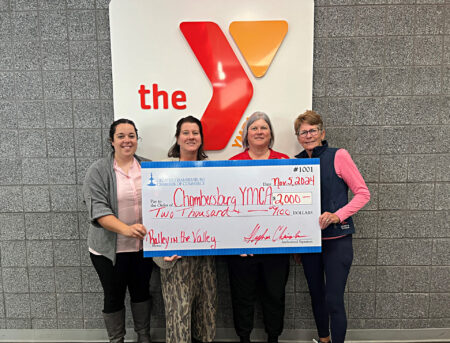HARRISBURG- The Pennsylvania Department of Education (PDE) awarded $1 million in PA Hunger-Free Campus grants to 30 institutions of higher education and private licensed schools to combat student hunger on campuses across the Commonwealth. Grants are awarded to help schools address food insecurity on campus, including expanding access to food options, creating awareness initiatives, and upgrading facilities.
“Students of all ages learn best when they start the day with a full stomach and are better prepared to succeed when they have access to nutritious, healthy food,” said Governor Josh Shapiro. “That’s why my Administration fought for and delivered universal free breakfast in K-12 classrooms, and it’s why we’re fighting back against hunger on our college campuses. These grants will help colleges and universities across Pennsylvania improve and introduce programs to fight hunger and ensure students from every background have the freedom to chart their own course and the opportunity to succeed in Pennsylvania.”
“The Shapiro Administration is dedicated to supporting all students from pre-K to postsecondary, and one of the best ways to help students learn, grow, and achieve is by focusing on basic needs, including physical and mental health,” said Secretary of Education Dr. Khalid N. Mumin. “The colleges and universities awarded Hunger-Free grants have demonstrated a commitment to the well-being of the students on their campus, and this additional funding will help them bolster their efforts.”
Fighting hunger for students at every age is a priority for the Shapiro Administration. In addition to securing $1 million for Hunger-Free Campus grants in the 2023-24 budget, Governor Shapiro delivered funding to provide universal free breakfast to 1.7 million K-12 Pennsylvania students.
Awardees can be found on PDE’s website.
Grant recipients developed innovative and flexible initiatives to meet the unique needs of college students, some of which include offering a variety of meal plans including an option that provides ten or fewer meals weekly to avoid interfering with SNAP eligibility, creating or implementing meal-sharing programs, educating student leaders on campus to develop student-centered programs, or facilitating innovative community partnerships.
Awardees will be able to utilize the grant funds until December 31, 2024. This is the second cohort of grant awardees since the program’s creation.
All grant recipients are members of the Hunger-Free Campus Initiative, a coalition of Pennsylvania institutions of higher education focused on addressing hunger and other basic needs for their students, creating opportunities for connection among student hunger advocates, providing resources and strategies for campuses, and supporting opportunities to apply for grants related to addressing food insecurity.
Applications to receive a PA Hunger-Free Campus designations are open now and institutions can apply. Designees receive a certificate of recognition and placement on the PA Hunger-Free Campus website, and they also have an opportunity to apply for future grant opportunities.
In 2023, PDE unveiled PA MASLOW: A Hierarchy of Collegiate Basic Needs. PA MASLOW is a cross-agency partnership that expands upon the mission of PDE – ensuring every student not only has access to education, but also to the support and resources they need to succeed in their studies. This initiative engages postsecondary institutions in several pillars of work to help ensure students’ basic needs are met so they can succeed in the classroom, including digital equity, housing and transportation, mental health, personal needs, adult student needs, and safety and belonging.
PA MASLOW is a comprehensive guide to supporting postsecondary students, translated from Maslow’s Hierarchy of Basic Needs, which includes physiological, safety and security, love and belonging, esteem, and self-actualization needs. By addressing these basic needs in a more individualized approach, Pennsylvania can ensure that learners have everything they need to be successful and complete their credential.






















